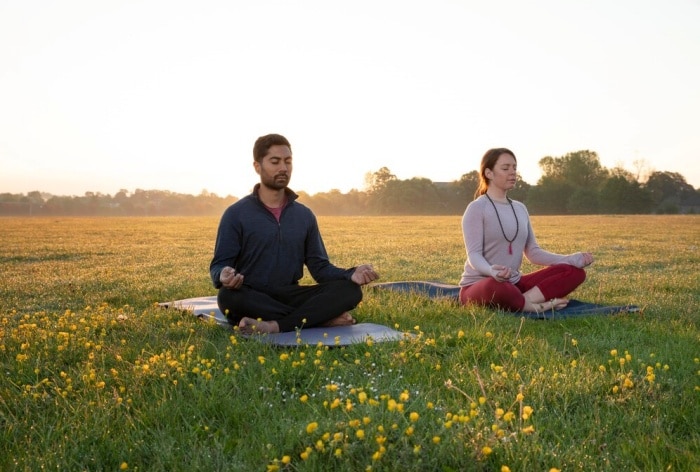Pranayam is one of the ancient technique of yogic breathing that is said to help boost lung health. Here are few benefits oof how it particularly impacts mental health.
The day-to-day demands of the contemporary world can take a toll on our mental health, causing stress, anxiety, and depression. When left unaddressed, these conditions can lead to a severe impact on our general well-being. While experts suggest a host of measures to mitigate mental health challenges, Pranayama, or Yogic Breathing, has carved a distinctive reputation for its significant positive effects on mental health. Speaking to IANS, Raman Mittal is the Co-Founder of Idanim elaborated that the ancient practice of Pranayama allows individuals to connect more deeply with their breath and witness an elevated sense of inner peace and relaxation.
Let us further delve deeper into the unprecedented advantages of integrating Pranayama into our daily lives.
Understanding Pranayama
Pranayama encompasses a range of approaches to help individuals control their breath and enhance their overall well-being. The practice is often paired with meditation and different yoga postures. Its fundamental principle is that the breath acts as a bridge between the mind and body, harmonising the two. By controlling their breath, individuals can accomplish a more profound sense of calm and balance in their lives.
Mental health benefits of Pranayama
Numerous scientific researches across the globe have validated the significant effect of Pranayama on mental health, including-:
- Lowered stress: By allowing individuals to focus on their breathing, Pranayama helps in alleviating stress and anxiety. With this, one can nurture a sense of inner calmness and develop resilience to deal with life’s challenges.
- Elevated mood: Pranayama is also highly recognised for its ability to uplift mood and mitigate the symptoms of depression. It fosters an optimistic environment, replacing negative beliefs and emotions with positivity and happiness, improving overall mental well-being.
- Improved focus: Pranayama can be a vital tool for improving concentration and focus in today’s world of endless distractions. Training the mind to focus on the present moment, it allows practitioners to perform their daily tasks with improved efficiency and precision. Thus, by making it a regular part of their routine, individuals can achieve higher productivity in all areas of their lives.
- Enhanced self-awareness: Regularly practising Pranayama can also help in developing an increased sense of self-awareness. This heightened self-awareness enables us to comprehend our thoughts and emotions better, leading to personal growth and self-improvement.
A few techniques of Pranayama that can be easily incorporated into our daily routine:
- Bhramari: The Bhramari Pranayama method involves producing a humming sound while inhaling and exhaling through the nose. This popular technique is known to relieve stress and promote a feeling of calmness.
- Nadi Shodhana: This technique involves breathing rhythmically via alternating nostrils, allowing individuals to accomplish inner balance and lower stress levels. Additionally, the alternating flow of air via the left and right nostrils promotes the alignment of vital energies, cultivating a sense of tranquillity.
- Kapalbhati: Practising Kapalbhati involves rapid and strong inhales and exhales via the nose. This exercise can boost focus and concentration, making it an ideal tool for individuals aiming to bolster mental clarity and productivity.
Embracing Pranayama as a beginner
To begin practising Pranayama, finding a quiet and comfortable place to sit or lie down is crucial. Once you have located your spot, close your eyes and take a few deep breaths to help relax and calm your mind. Then, choose a Pranayama exercise that resonates with you and start practising. It is essential to listen to your body and avoid pushing yourself too much.
–>
